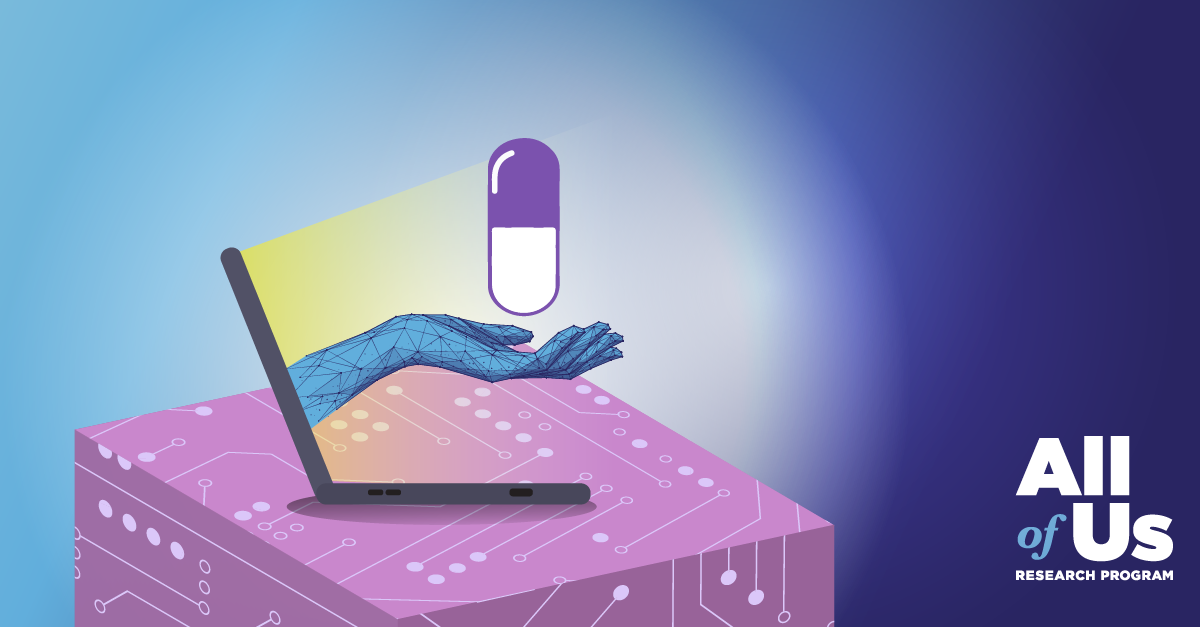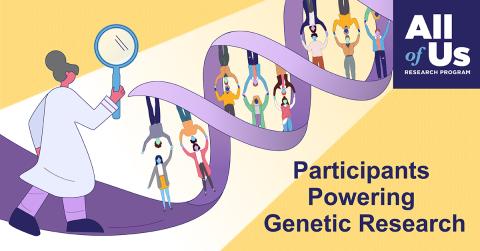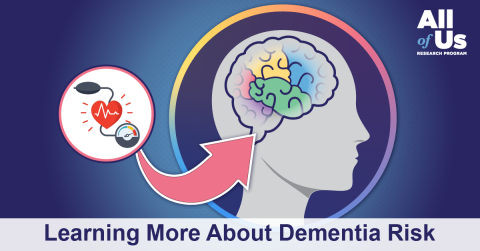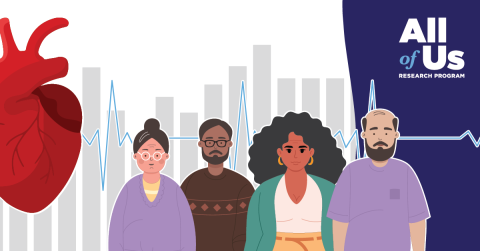All of Us is shaping how we understand health and disease. Research Highlights showcase the recent research powered by All of Us data and tools.
Featured Highlight

All of Us and Artificial Intelligence Help Speed Up the Search for Promising Medicines
Artificial intelligence and All of Us may help speed up the time it takes to find medicines to treat health conditions. Researchers used ChatGPT to quickly identify existing medicines that might help prevent Alzheimer’s disease. They then looked at All of Us and another large health dataset to confirm that three of these medicines are worth studying in people.
Discovering More Genetic Variants Thanks to All of Us Data
Researchers discovered 118 genetic variants that were previously unknown. They did this by looking at DNA information and electronic health record data shared by All of Us participants. Research like this may make precision medicine possible for more diseases in the future.
What All of Us Data Says About Blindness and Mental Health During COVID-19
Many people felt new or worse anxiety and depression during COVID-19. Not every community was affected the same. A study using All of Us data found that anxiety and depression were especially high in people with blindness or low vision during the pandemic.
Learning More About Dementia Risk Through All of Us
Keeping a healthy blood pressure today could lower a person’s chances of getting dementia later. By studying electronic health record data shared by All of Us participants, researchers verified a strong link between high blood pressure and risk for dementia.
All of Us Data Clarifies What We Know About Hispanic Heart Health
Researchers used electronic health record data shared by All of Us participants to double-check heart disease rates among different racial and ethnic groups. These results challenge what we thought we knew about heart disease in Hispanic/Latino people.
Steps to Better Health with All of Us
A new study using All of Us participant Fitbit and electronic health record data finds that taking at least 8,200 daily steps is linked with lower rates of certain health conditions—including depression, sleep apnea, acid reflux, high blood pressure, obesity, and diabetes.




